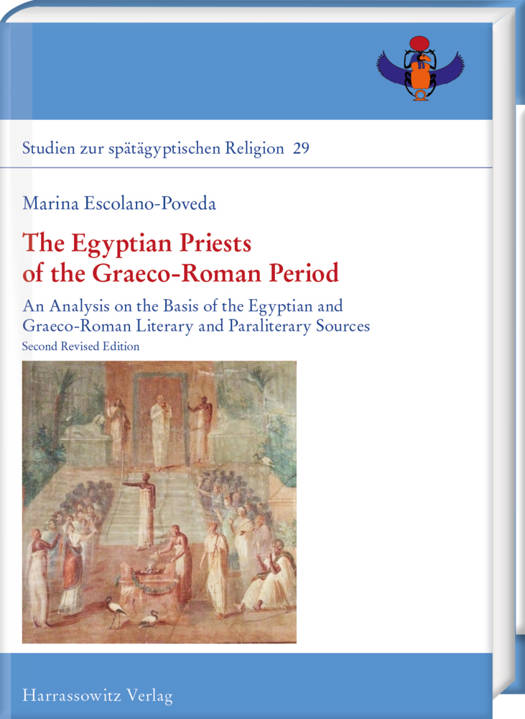
- Retrait gratuit dans votre magasin Club
- 7.000.000 titres dans notre catalogue
- Payer en toute sécurité
- Toujours un magasin près de chez vous
- Retrait gratuit dans votre magasin Club
- 7.000.0000 titres dans notre catalogue
- Payer en toute sécurité
- Toujours un magasin près de chez vous
The Egyptian Priests of the Graeco-Roman Period
An Analysis on the Basis of the Egyptian and Graeco-Roman Literary and Paraliterary Sources
Marina Escolano-Poveda
96,95 €
+ 193 points
Format
Description
Throughout Egyptian history, high-ranking Egyptian priests were the scholars responsible for the creation of the very material that constituted the core of Egyptian intellectual culture. During the first millennium BCE, and particularly in the Graeco-Roman period (late fourth century BCE-fourth century CE), they were the social group in charge of mediating and negotiating the terms of the relationship between traditional Egyptian culture and the new foreign rulers of the country. As such, they are fundamental figures for our understanding of the greater Mediterranean and Near Eastern world of the time. Marina Escolano-Poveda offers for the first time a detailed analysis of the most relevant Egyptian priestly characters from Egyptian and Graeco-Roman literary and paraliterary sources. The examination of these sources contrasts the self-presentation of Egyptian priests in texts created and circulated within the temple environment with images presented by outside sources, providing a solid base to analyze how these figures were seen in their historical milieu. In the second part of the book, the results of the previous analysis are contrasted with a series of widely-used models employed to understand the historical and intellectual context of Egyptian religion and the Egyptian priesthood in the Graeco-Roman period, questioning the usefulness and applicability of such models. Escolano-Poveda proposes new ways of understanding the role of the Egyptian priests in this context as fundamental actors in the development of the philosophical, scientific, and literary culture of the Hellenistic, Roman, and Late Antique worlds. This Second Revised Edition corrects and updates the previous one, incorporating new discussions of recent developments in the analysis of each section of the book.
Spécifications
Parties prenantes
- Auteur(s) :
- Editeur:
Contenu
- Nombre de pages :
- 396
- Langue:
- Anglais
- Collection :
- Tome:
- n° 29
Caractéristiques
- EAN:
- 9783447120821
- Date de parution :
- 15-12-23
- Format:
- Livre relié
- Format numérique:
- Genaaid
- Dimensions :
- 210 mm x 297 mm
- Poids :
- 1238 g

Les avis
Nous publions uniquement les avis qui respectent les conditions requises. Consultez nos conditions pour les avis.






